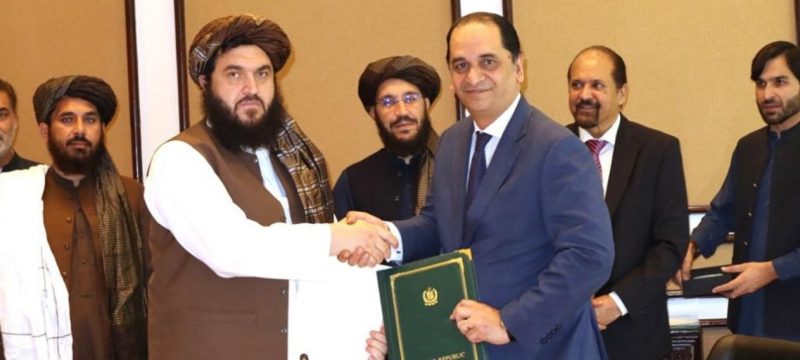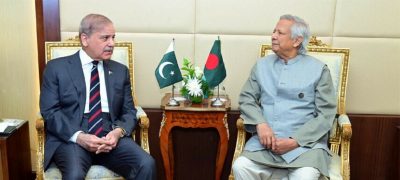In a significant step toward improving relations, Pakistan and Afghanistan have signed a Preferential Trade Agreement (PTA). The agreement aims to enhance bilateral trade by reducing tariffs on key agricultural products. Both countries reduce tariffs to 27% after historic trade pact.
The deal was signed by senior officials from both countries’ commerce departments. Pakistan’s Commerce Secretary Jawad Paul and Afghanistan’s Deputy Commerce Minister Mullah Ahmadullah Zahid represented their sides during the signing ceremony.
Under the new agreement, customs duties on eight agricultural products will be lowered. These include four exports from Afghanistan to Pakistan, namely grapes, apples, pomegranates, and tomatoes, as well as four Pakistani exports to Afghanistan: mangoes, kinnows, bananas, and potatoes.
Previously, tariffs on these products were in excess of 60%. Under the new deal, rates have been capped at 27%. This is expected to make trade more affordable for farmers and businesses on both sides of the market.
According to the Afghan Embassy in Islamabad, the agreement will take effect on August 1, 2025, and will remain valid for one year. It is renewable and may be expanded to include more products in the future.
Kabul’s Charge d’Affaires in Islamabad, Sardar A. Shakeeb, described the deal as a win for both countries. He said it would help farmers and traders and support shared economic growth.
The agreement follows an agreement between the two countries to upgrade diplomatic ties in May. This shows a growing effort to strengthen cross-border cooperation.
Pakistan and Afghanistan share a 2,500-kilometer-long border with multiple crossing points. These routes are essential for trade and people-to-people contact.
However, security concerns continue to affect relations. Terrorism remains a significant issue for Pakistan, particularly with fears of cross-border attacks by groups like the Tehreek-e-Taliban Pakistan (TTP).
Last week, Interior Minister Mohsin Naqvi visited Kabul. He met Afghan leaders, including Interior Minister Sirajuddin Haqqani. Both sides agreed to work together on border management, counterterrorism, and drug control.
They also discussed the repatriation of Afghan nationals living illegally in Pakistan. Naqvi stressed the need for unity to defeat terrorism and highlighted Pakistan’s long-standing support for Afghan refugees.
The new trade pact reflects a positive shift toward economic cooperation, despite ongoing security challenges.As regional trade flourishes, the digital world is also booming with record-breaking profits. Read how YouTube hit $9.8B in ad revenue: YouTube Sets New Records









